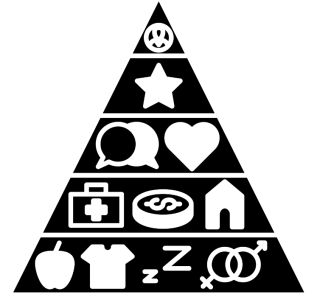Career
Workplace Recognition Is Actually Reassurance—and Necessary
People need weekly recognition at work to feel safe, not special.
Posted July 5, 2024 Reviewed by Hara Estroff Marano
Key points
- People require weekly recognition at work to sustain maximum discretionary effort and top performance.
- Managers often resent the idea of having to stroke egos in exchange for performance.
- Recognition does not serve the need for self-esteem; rather, it serves the more basic need for safety.
- Seeing recognition as reassurance can help leaders who think it's wise to keep workers uncomfortable.
Recognition is pretty popular in the world of organizational psychology, with good reason. Were leaders somehow forced to pick only one behavior to drive team performance, recognition would be their best bet, because it would lead the team to self-govern.
For a leader to be great, it is almost a requirement to be generous with providing recognition, as it is one of the most powerful drivers of discretionary effort. When people are recognized, they work harder. Anyone who has ever led effectively either knew this instinctively or figured it out pretty quickly.
For most leaders, providing recognition is intuitive. It’s easy whenever someone does a good job. But they also provide recognition when they sense that a team member needs a pick-me-up. Sometimes they provide it on the spot, other times they form a more elaborate plan.
But the point is that good leaders stay connected to their teams and provide recognition whenever they can sense it is needed. And that is why they are not great leaders.
What Does the Science Say?
Social science is really fun when it confirms that your instincts are scientifically valid. But it’s also really useful when it confirms that you don’t know nearly as much as you thought.

Employee engagement is the measure of individual commitment to organizational success, and it correlates directly with discretionary effort. The Gallup Q12 is the gold standard in measuring engagement, providing its 12 most powerful predictors. Number four is: “In the last seven days, I have received recognition or praise for doing good work.”
When leaders first encounter the Gallup Q12, their reaction is usually cocky, as in, “Yeah. I didn’t need science to tell me that, thanks.” Until you point out that it says, “in the last seven days.”
For how long have you been providing each member of the team meaningful recognition at least once per week? How do you maintain the discipline? How do you keep the recognition fresh? Not so cocky anymore.
In fact, resentment is the most common reaction. “What am I, their parent? They’re adults. When did it become my job to protect their fragile little egos?” It’s understandable. Between strategy, execution, metrics and politics, there’s no room for what’s already on their plates. They don’t need another thing to worry about.
But the truth—that focusing on recognition will lead to more time and less need for politics based on team performance—rarely works. For psychological reasons, rather than business ones, most leaders find the prospect of tending weekly to people’s egos to be incredibly unappealing.
Something is being fundamentally misunderstood.
What Need Are We Serving?
Maslow’s hierarchy of needs has never been validated. It’s art, not science. But for psychology, it’s the Mona Lisa.

For the unfamiliar, Maslow posited that our needs exist in a hierarchy; higher-level needs don’t matter until lower-level needs are met. The first level is physiological, the second safety. Maslow’s point was that safety would not be a motivating force until you had sufficient air, food, water, and sleep.
Just about everybody assumes that providing recognition addresses Maslow’s fourth level of need, self-esteem. They believe that people need sufficient recognition to feel sufficiently good about themselves in order to do their jobs sufficiently well. As is too often the case, just about everybody is sufficiently wrong.
Recognition at work is not about self-esteem. It’s about safety.
When we receive recognition at work, what we hear is, “Your boss and organization see and understand the value that you bring. Your contributions are not going to be forgotten if things get tough around here. Don’t worry. You’re safe. You’re in.”
Consider what happens when the same person consistently gives us compliments. Eventually, we begin to devalue them. Consistent recognition, on the other hand, does not lose impact, because it addresses a more fundamental need.
Conversely, for most of us, a lack of recognition does not lead to a loss of self-esteem. It leads to resentment and uncertainty about our future with the organization. Rightly or wrongly, relatively few people blame themselves when they are not receiving recognition. (The psychological stakes are far too high for our sense of self-worth.)
Withholding recognition never makes people work harder; it makes top performers leave and locks everyone else into a level of performance just above getting fired. Nice work, boss.
We Have to Recognize
People need to feel recognition once per week because our best work requires a sense of safety, not self-esteem. Working in a world in which profitable companies make layoffs has only intensified this need.

This understanding usually solves the motivation problem for leaders. Endeavoring to protect fragile and entitled egos is not intrinsically appealing for most; creating a safe environment for a team they love is.
Wise leaders should consider removing obstacles of their own making to provide weekly recognition. Resistance signals one of two things: a lack of understanding of its nature or a desire to keep people uncomfortable.
If lack of understanding, it may help leaders to reflect on their own emotional experiences receiving recognition in the past. Consider the feelings in the moment and the effect on your work afterwards.
If keeping people uncomfortable is the aim (because you think that breeds the best performance), it might be wise to start therapy immediately. You are ignoring science to fulfill your own psychological needs at the expense of others.
That’s it. Once per week, recognize each person on your team. Make it meaningful every time. And don’t skip a week. Find a way. Their sense of well-being and their ability to perform at their best depend greatly on it.
It may sound like a lot, but remember, if you are a leader, getting the best performance from your team is your actual job. Everything else is distraction.




